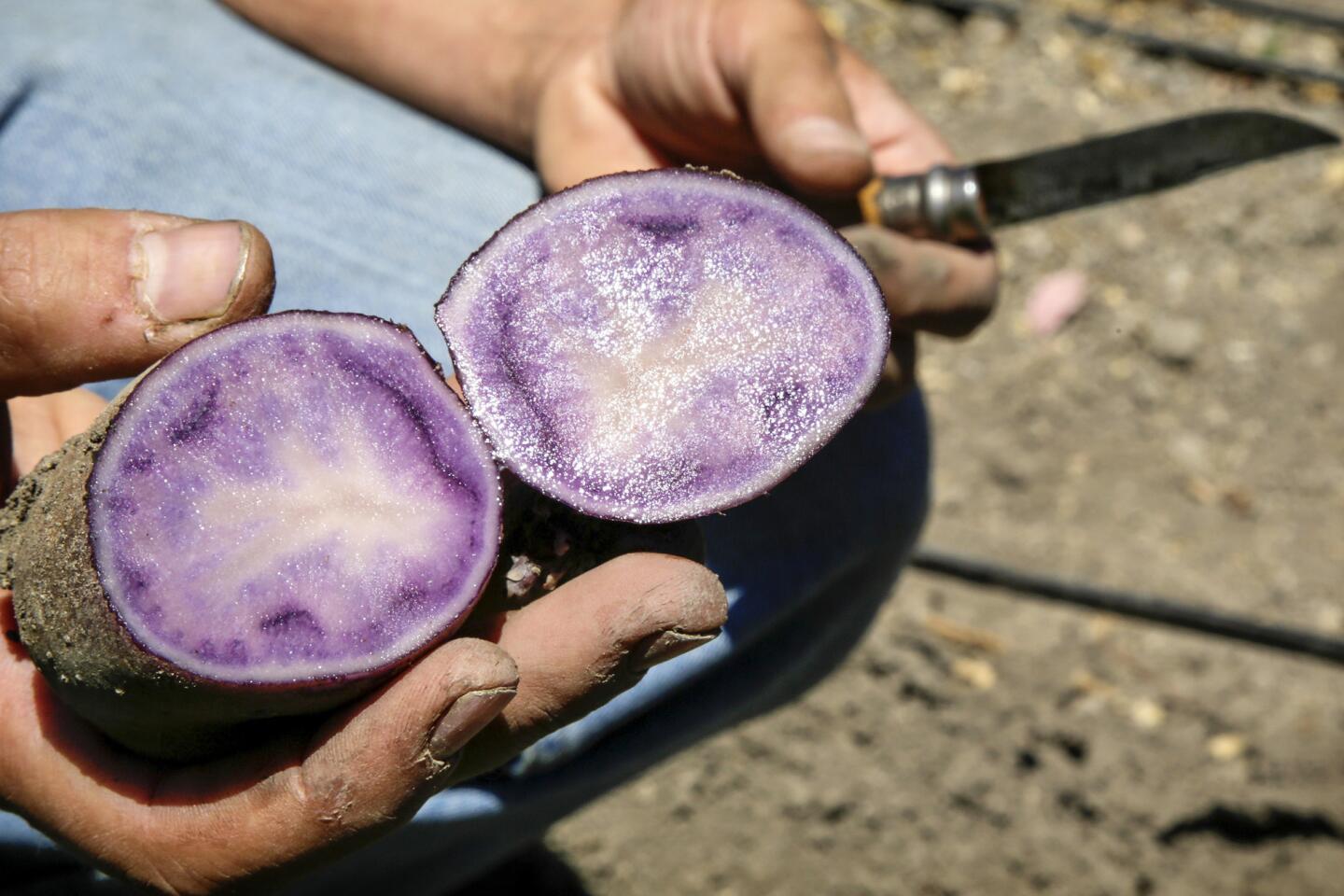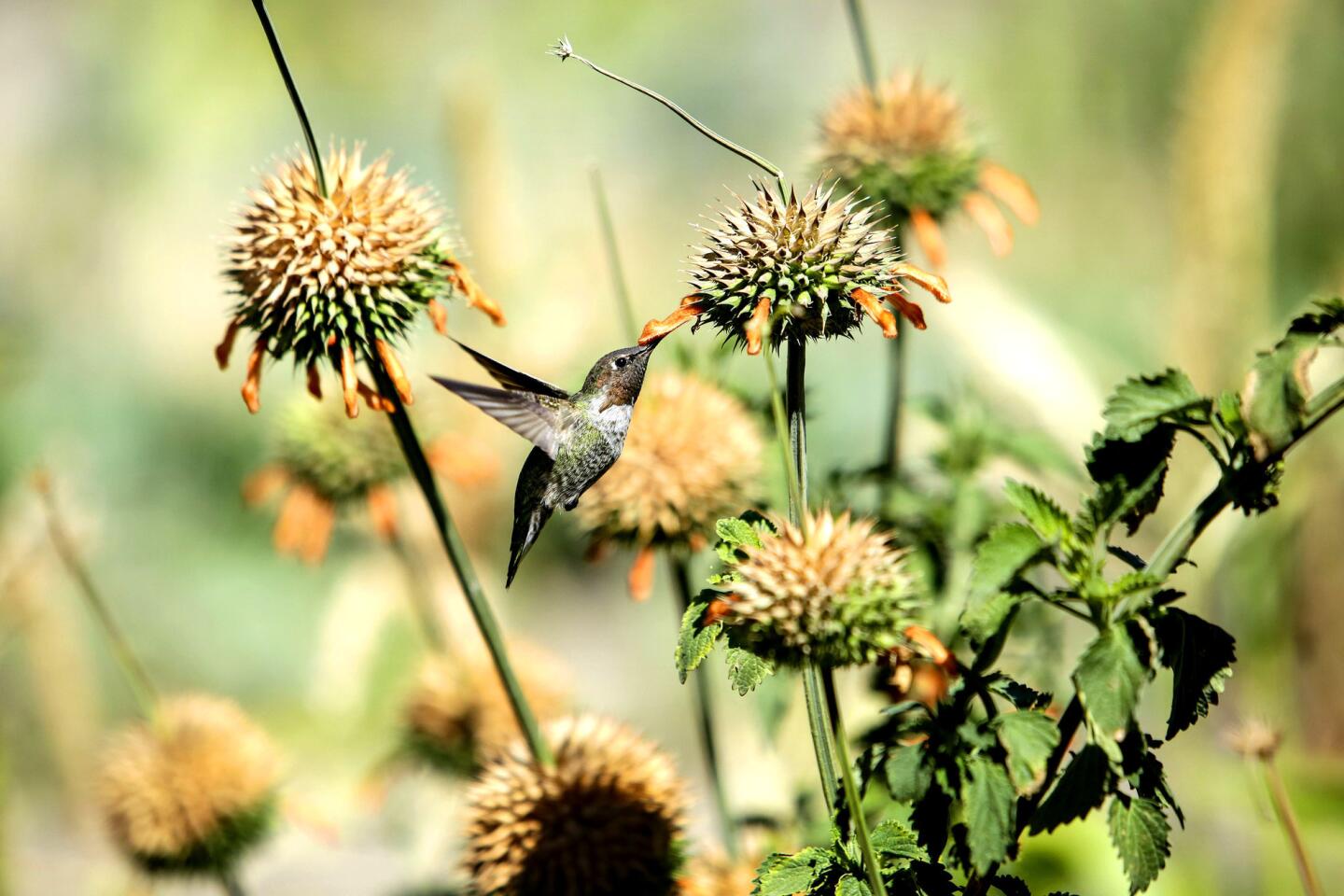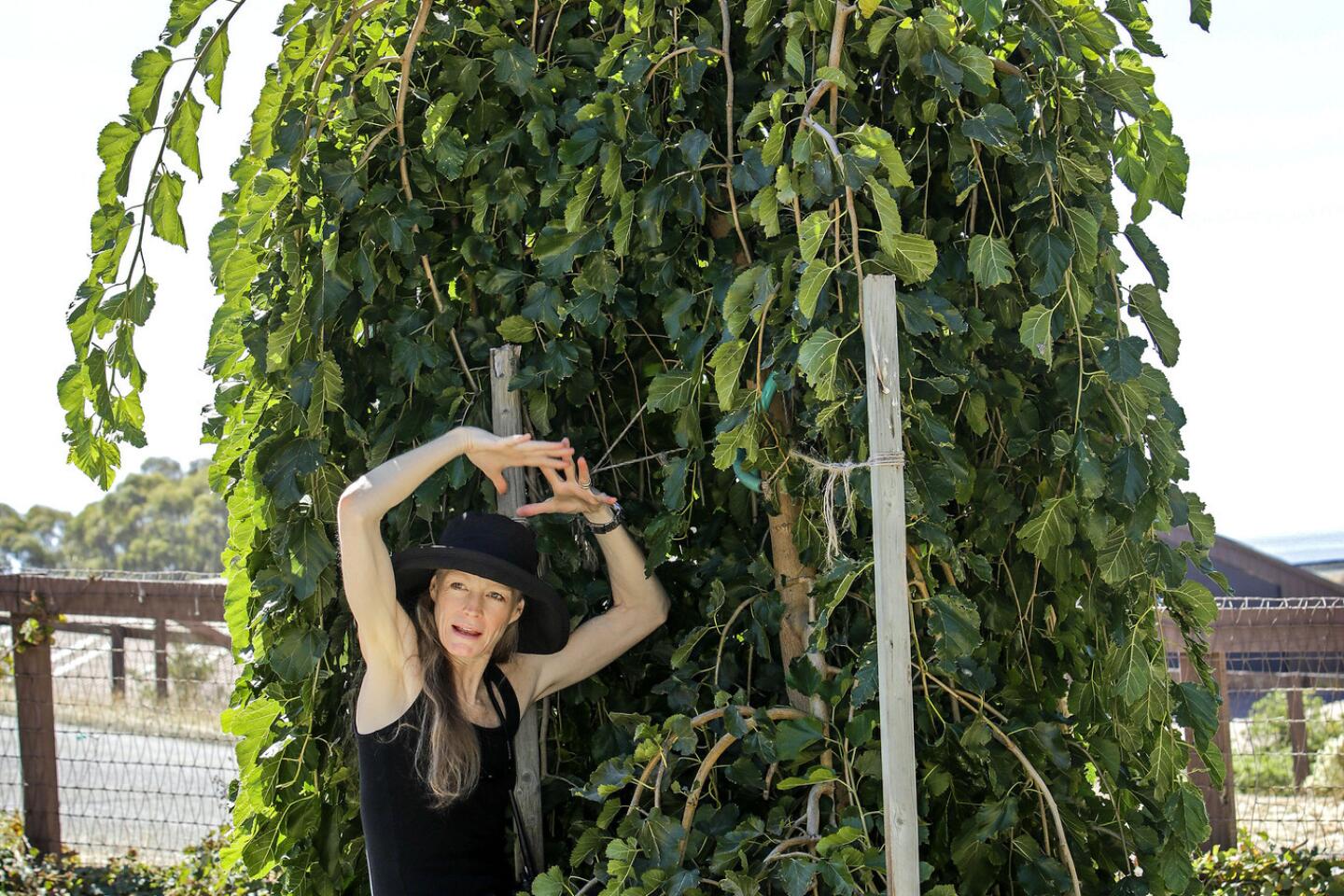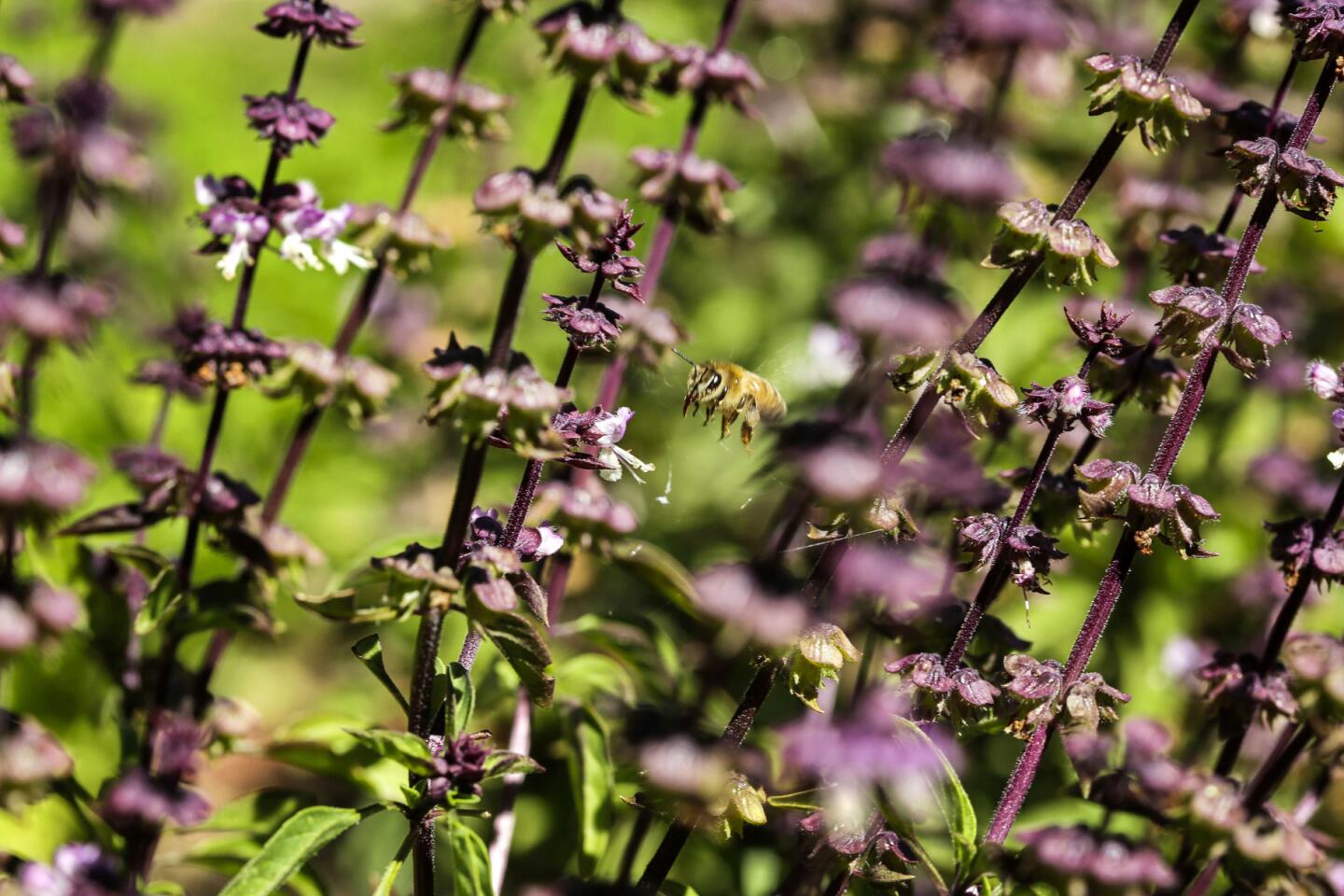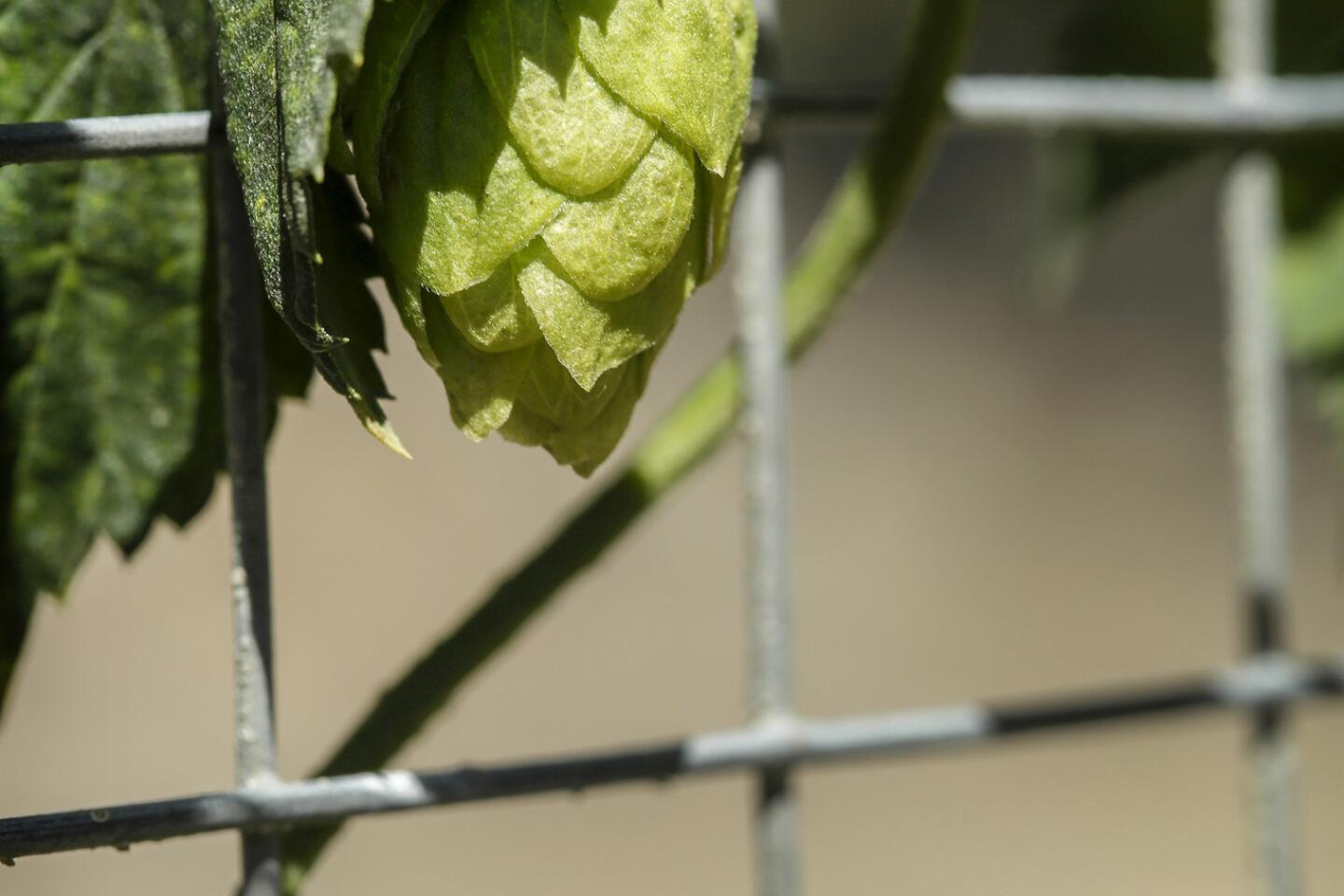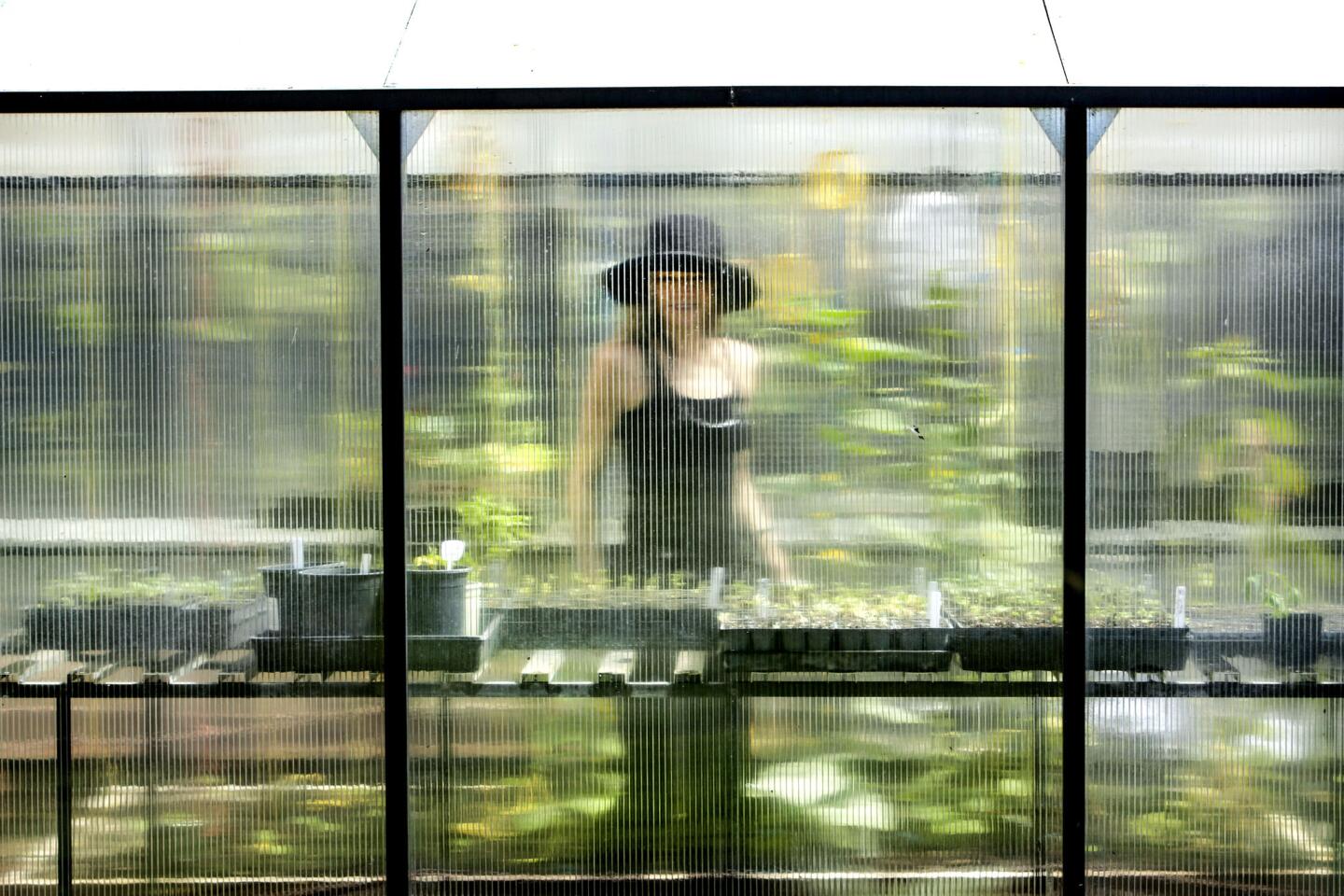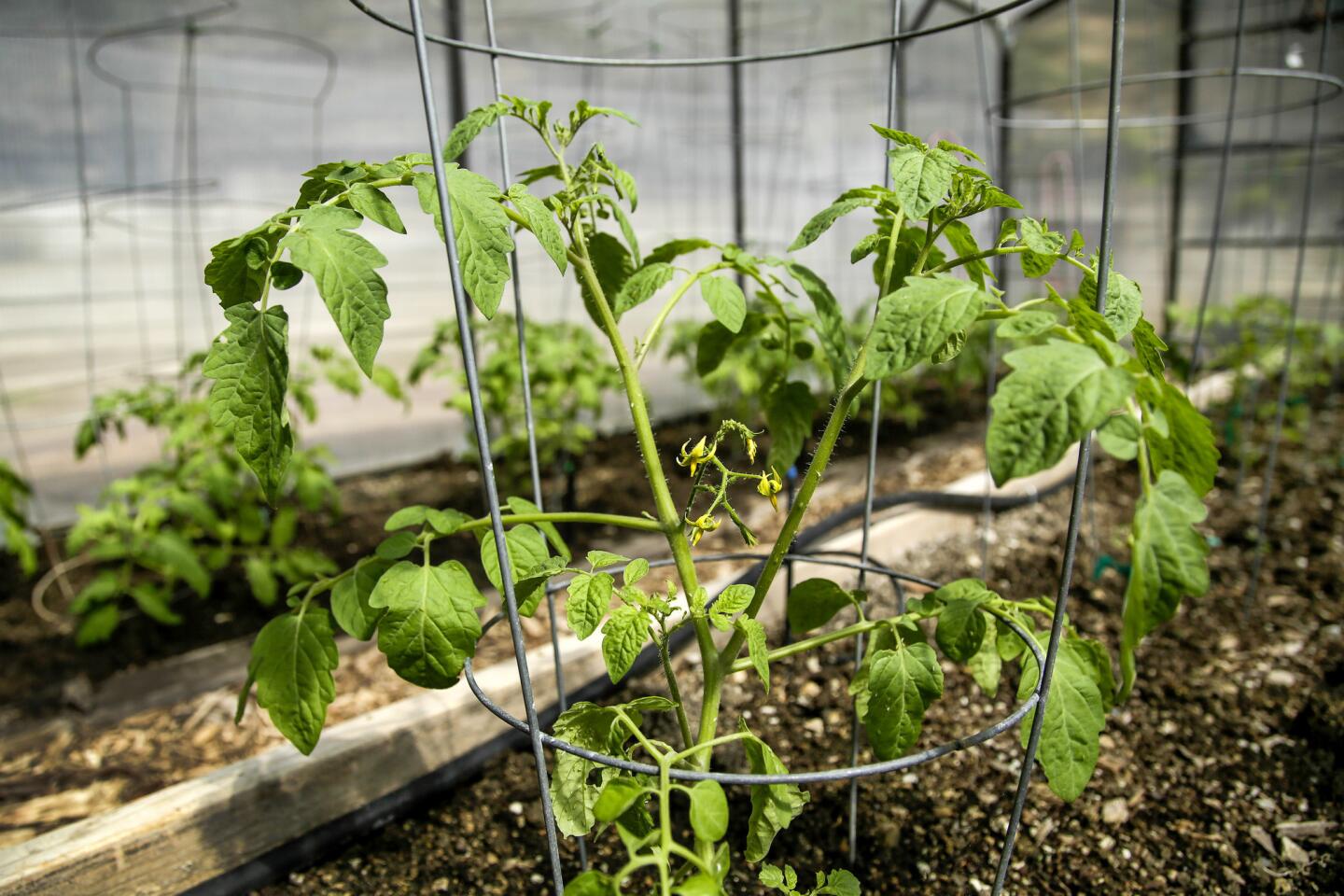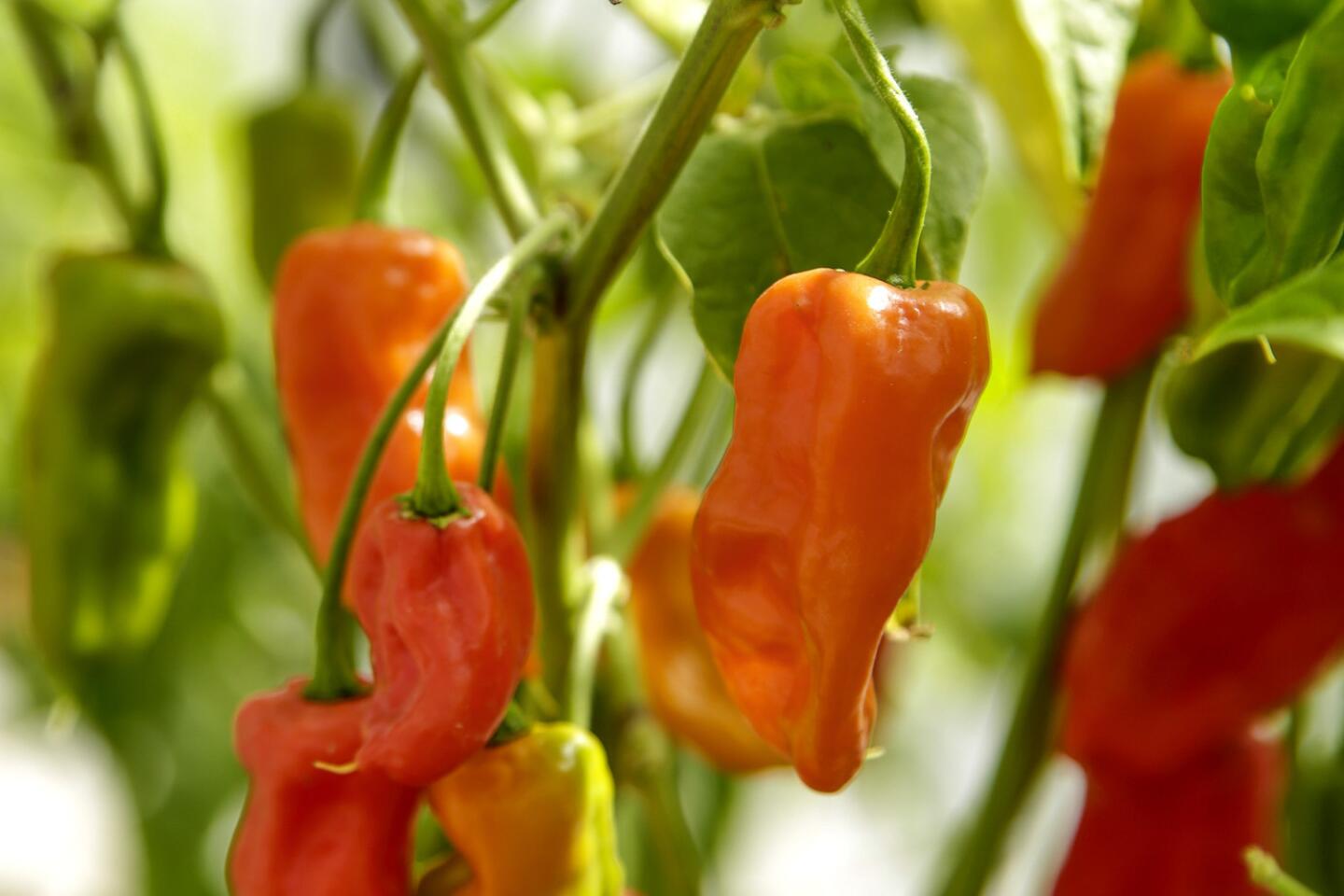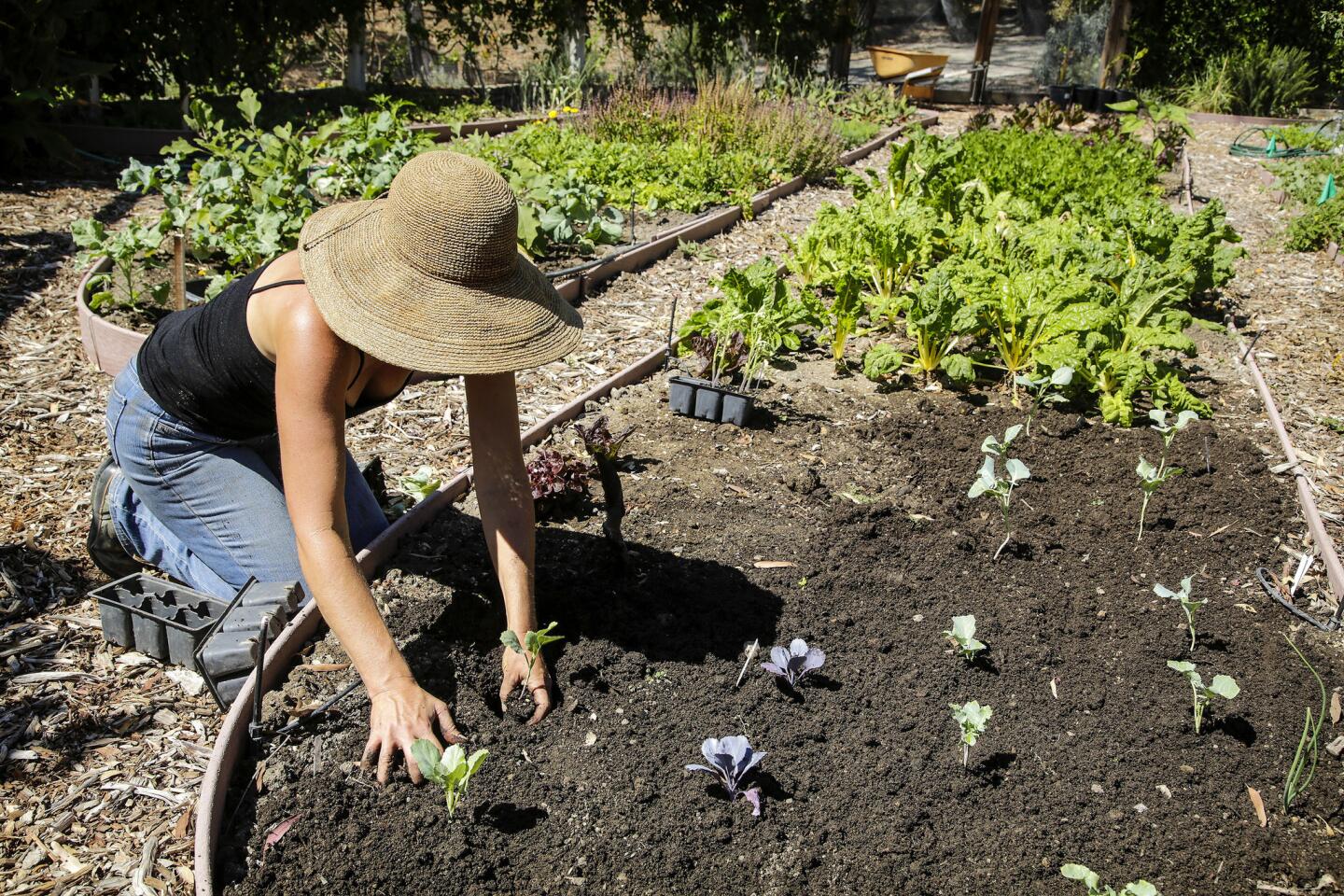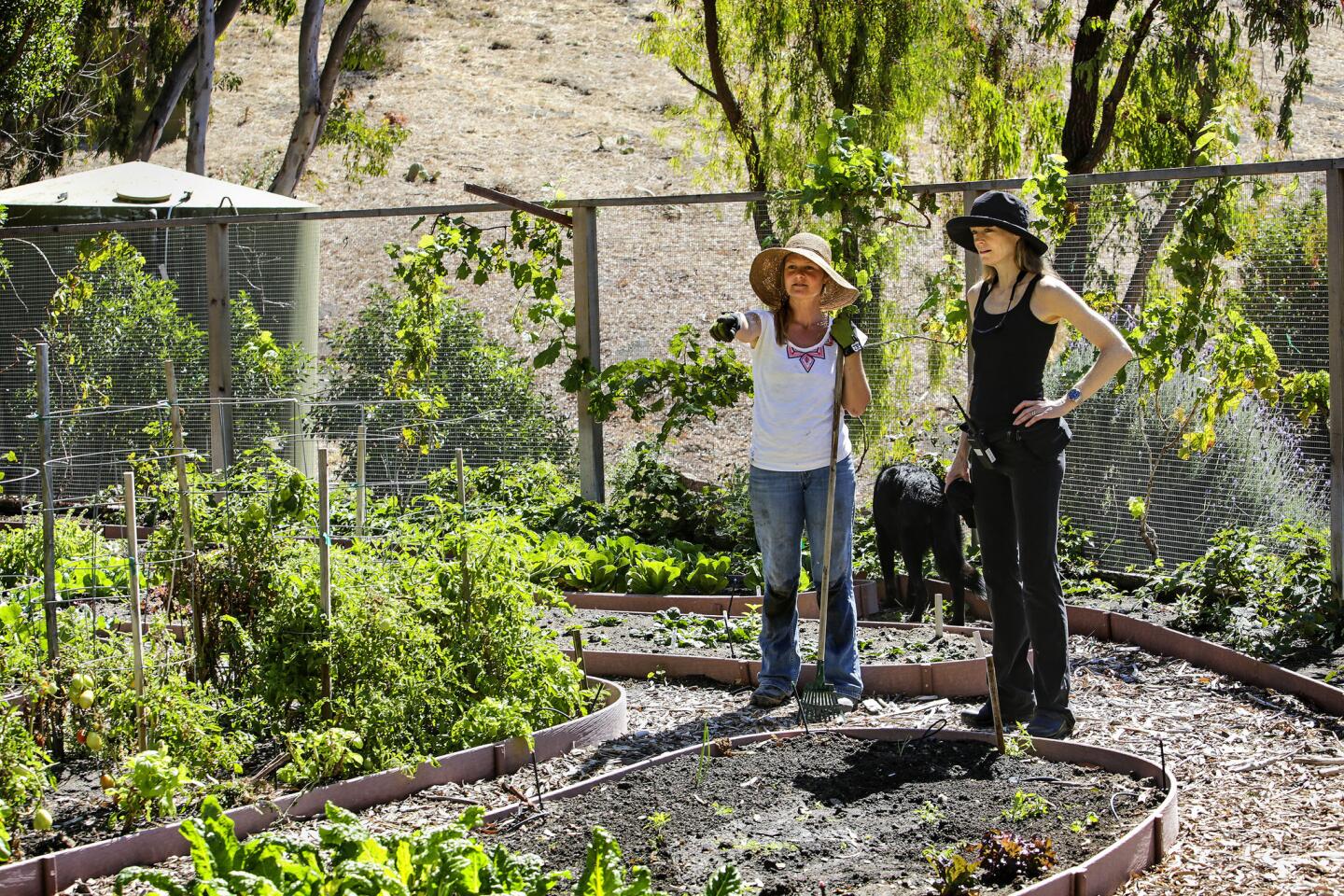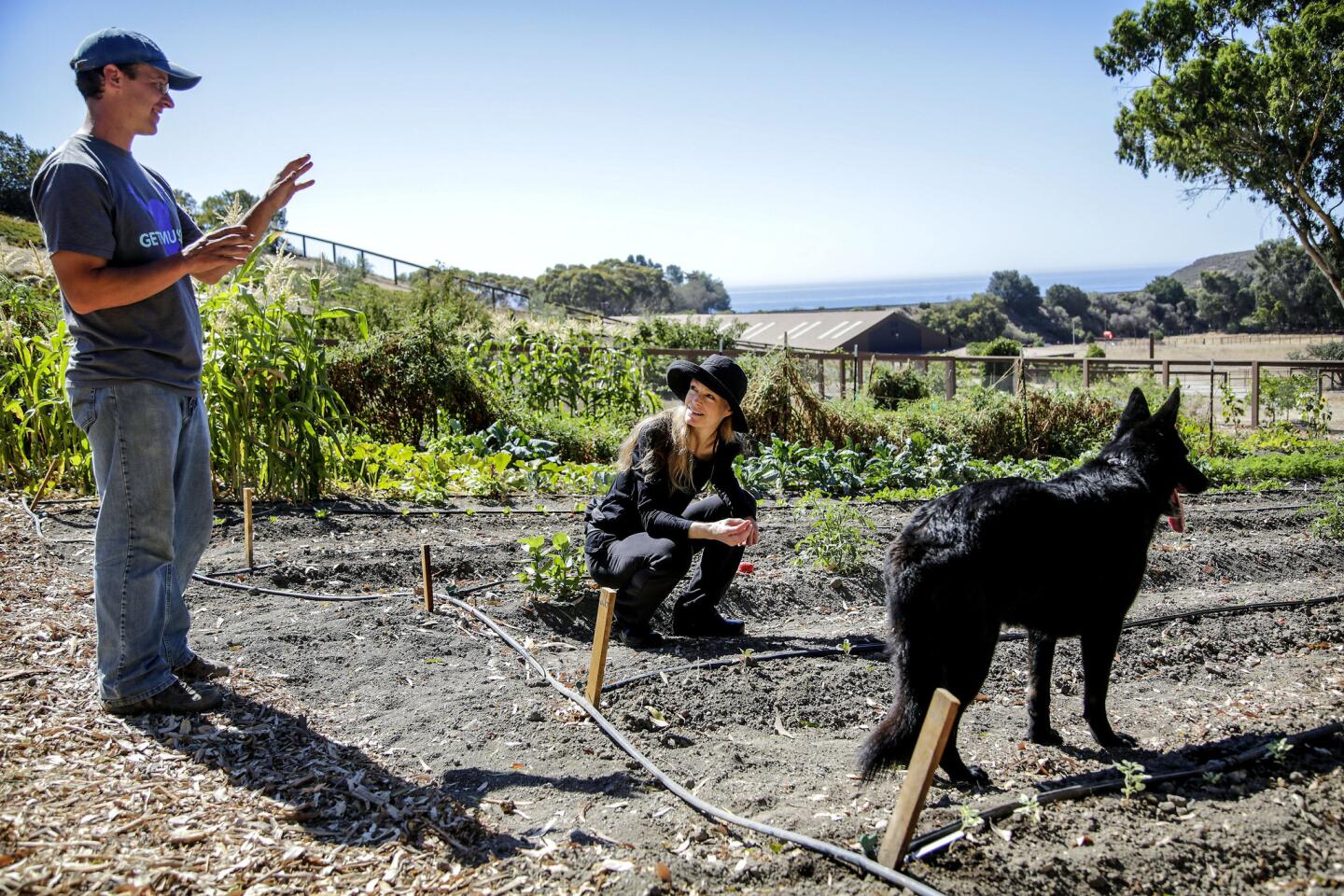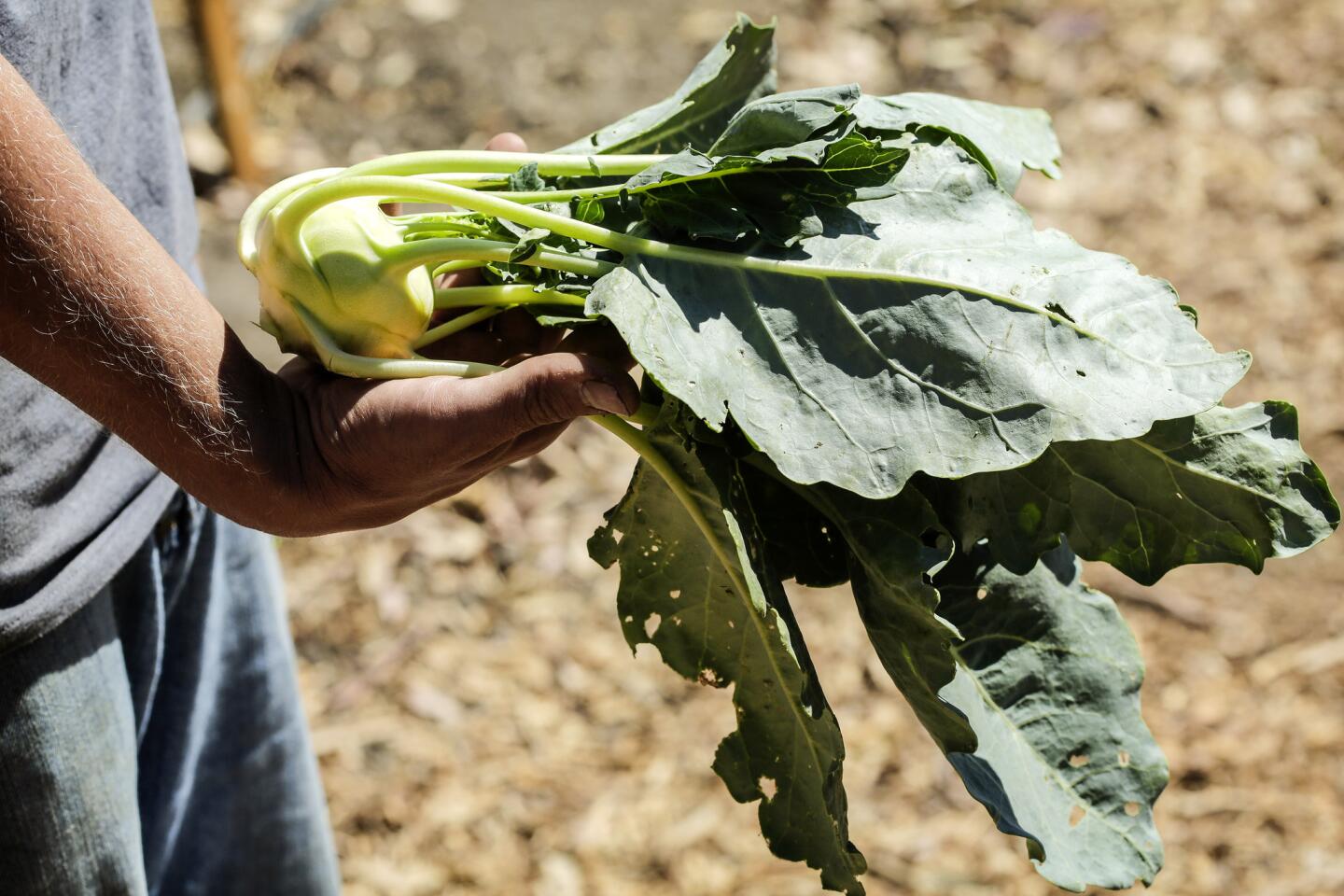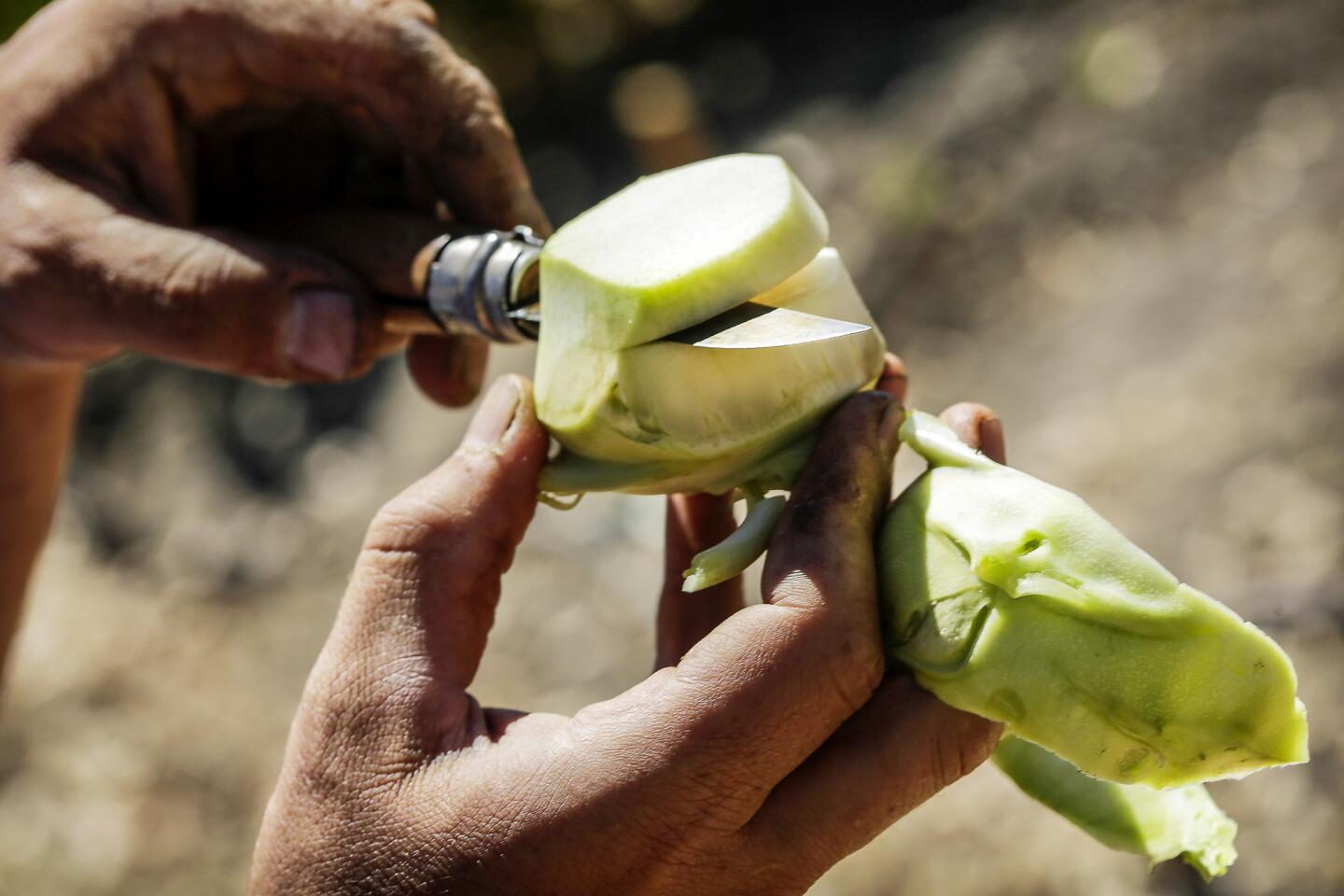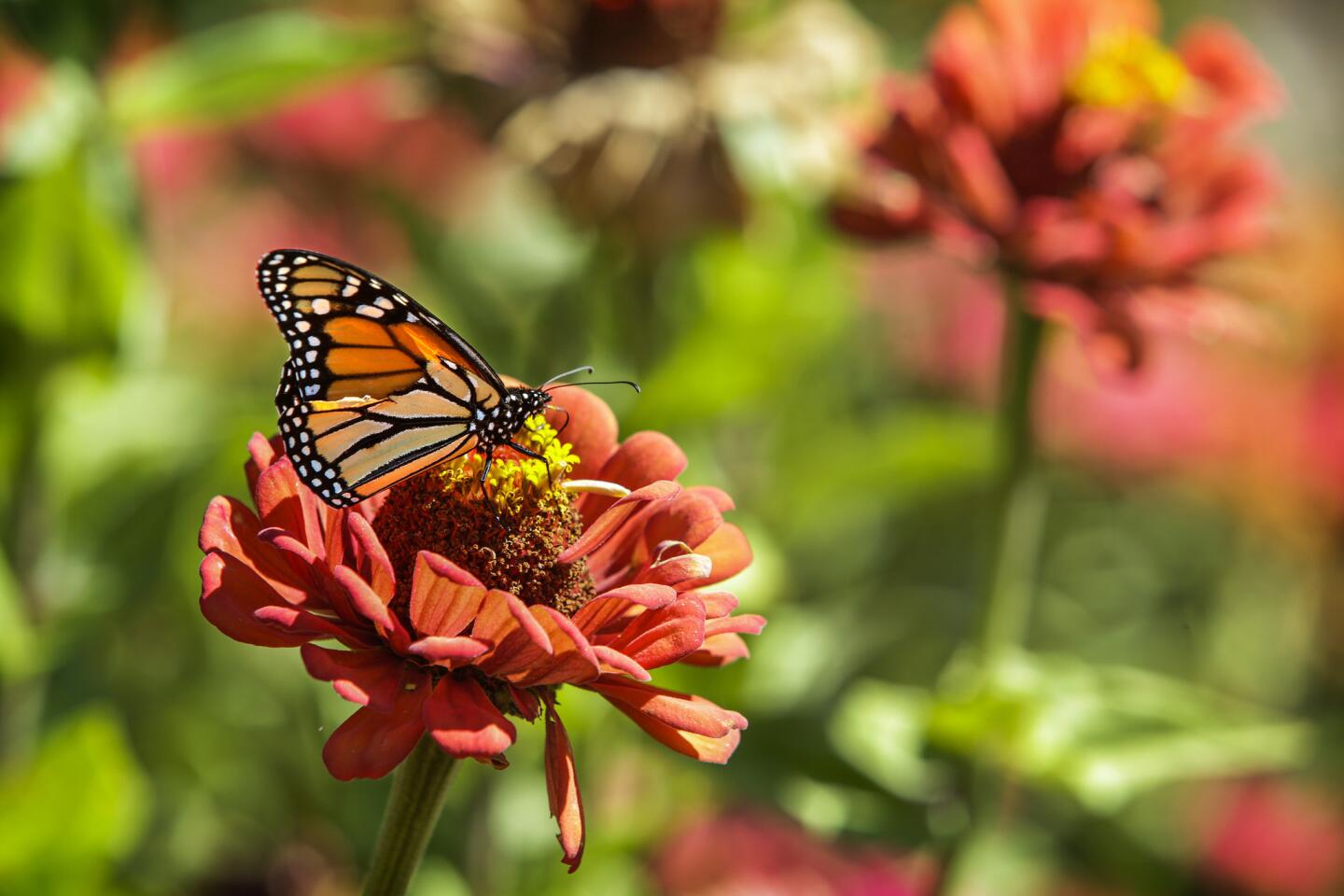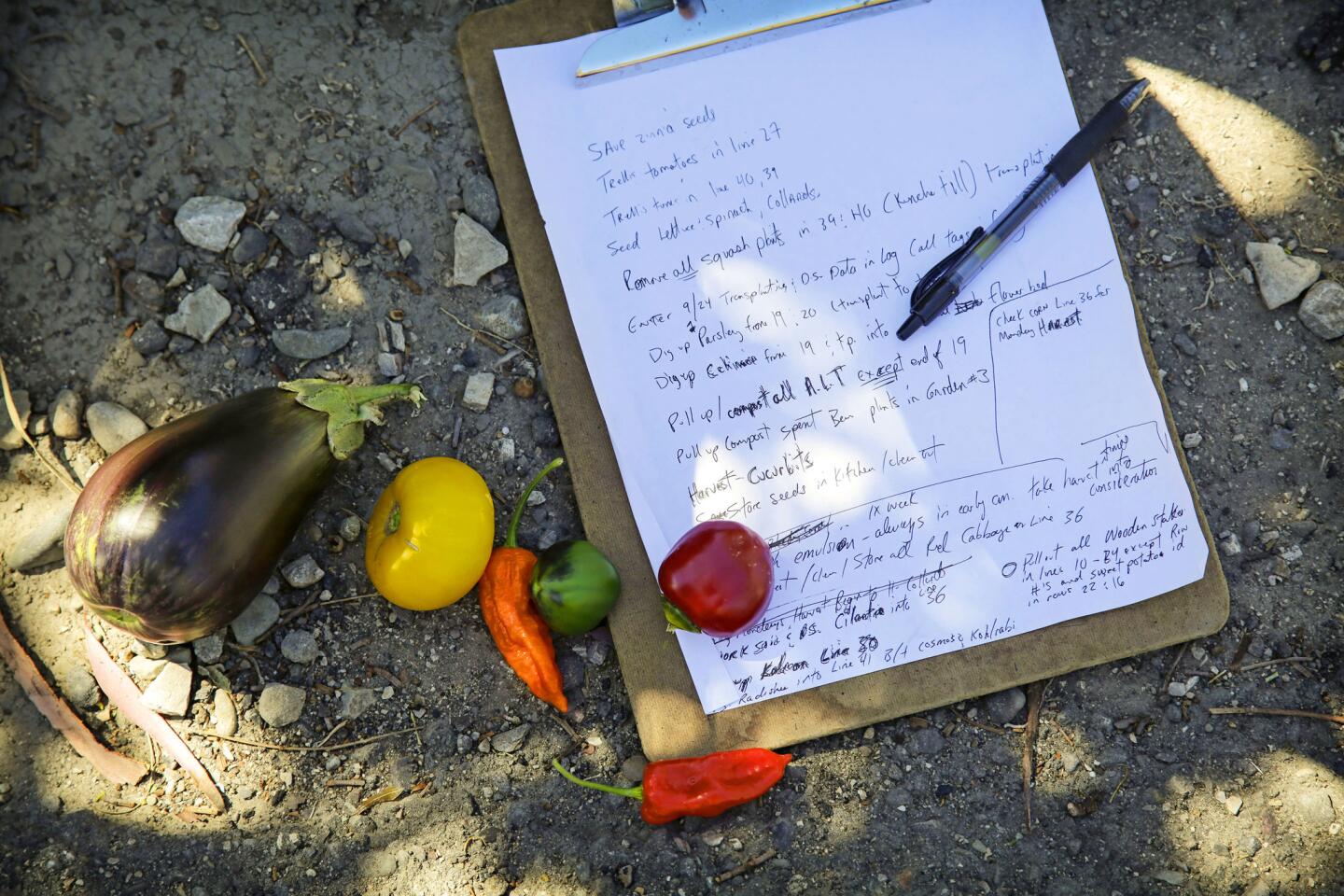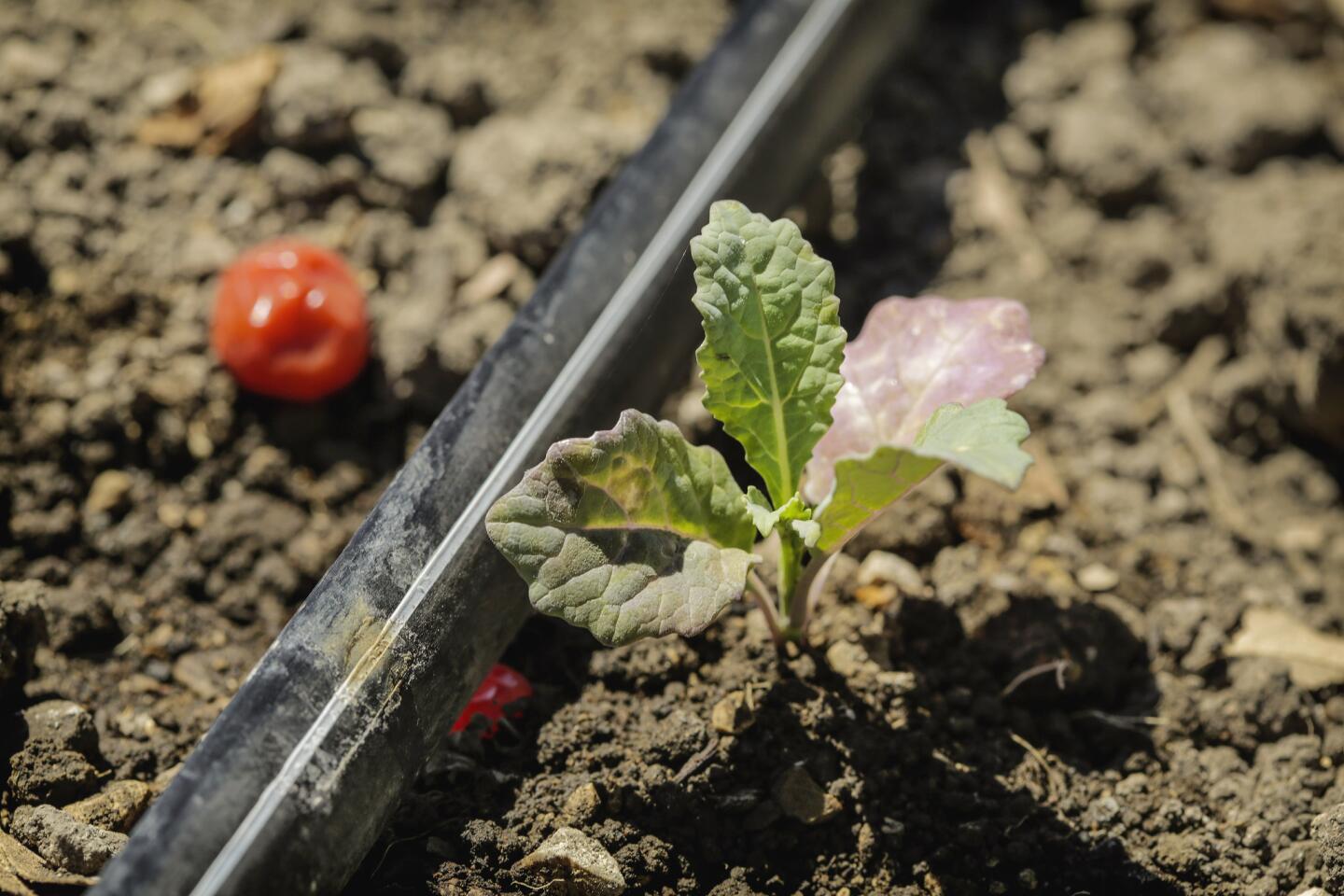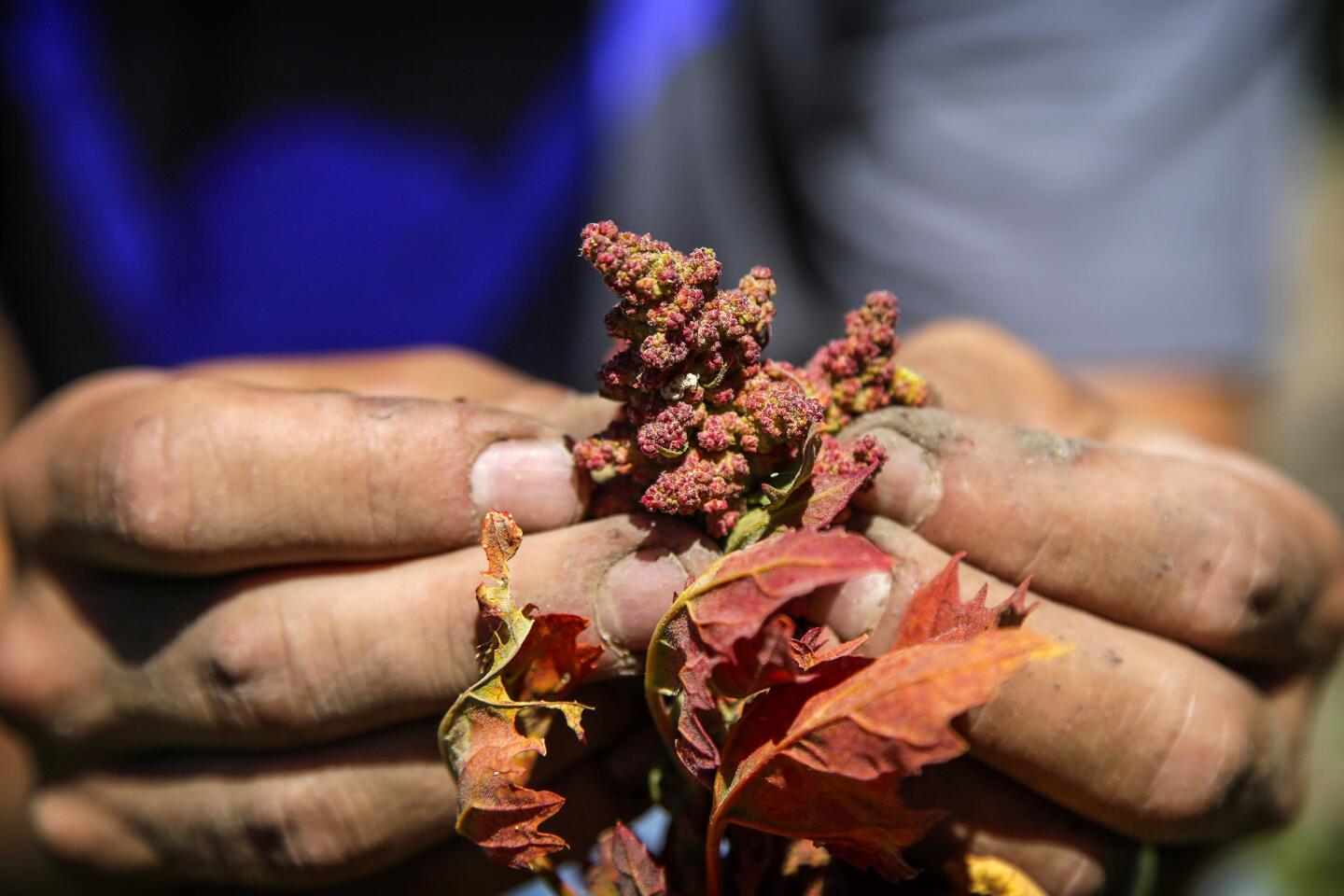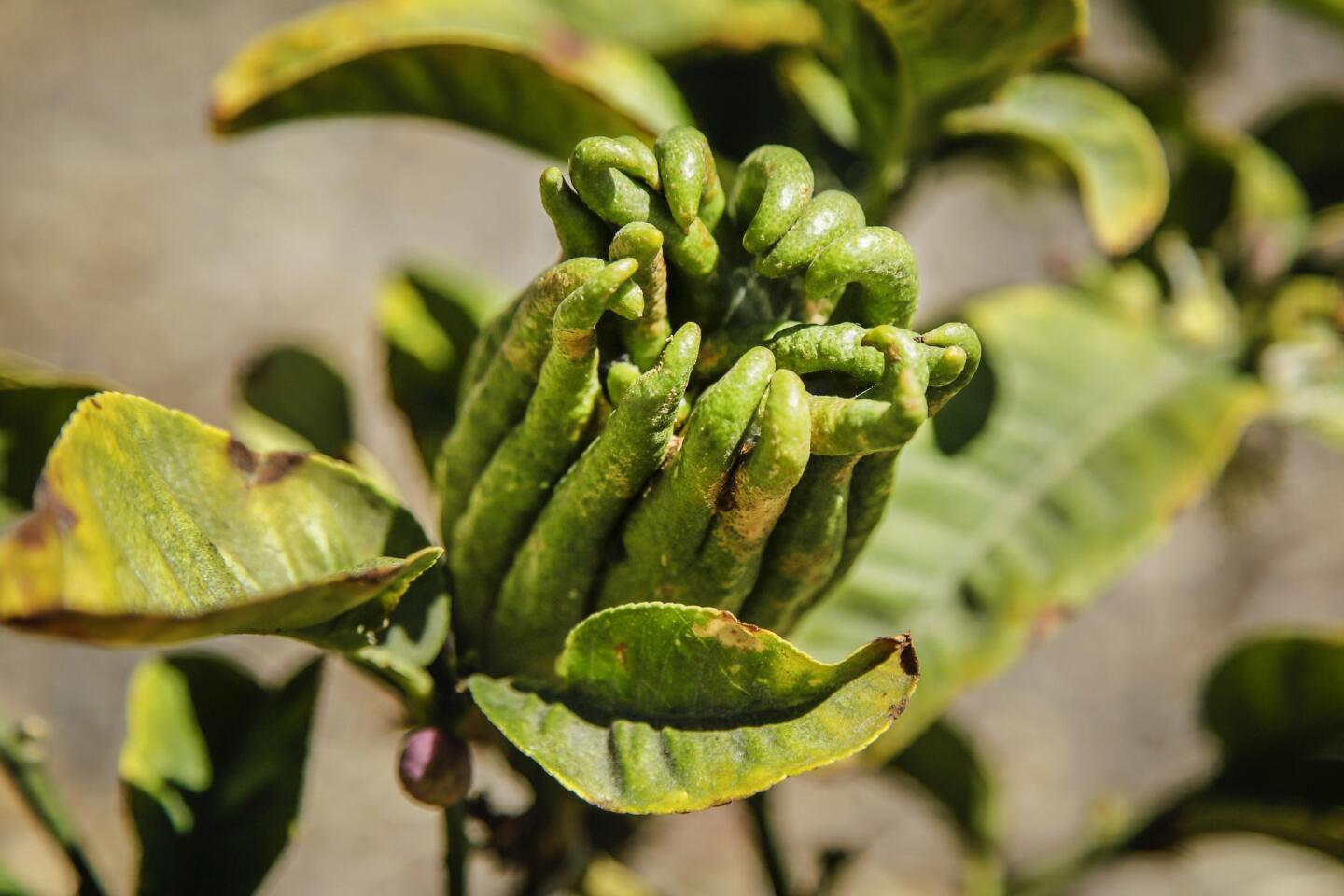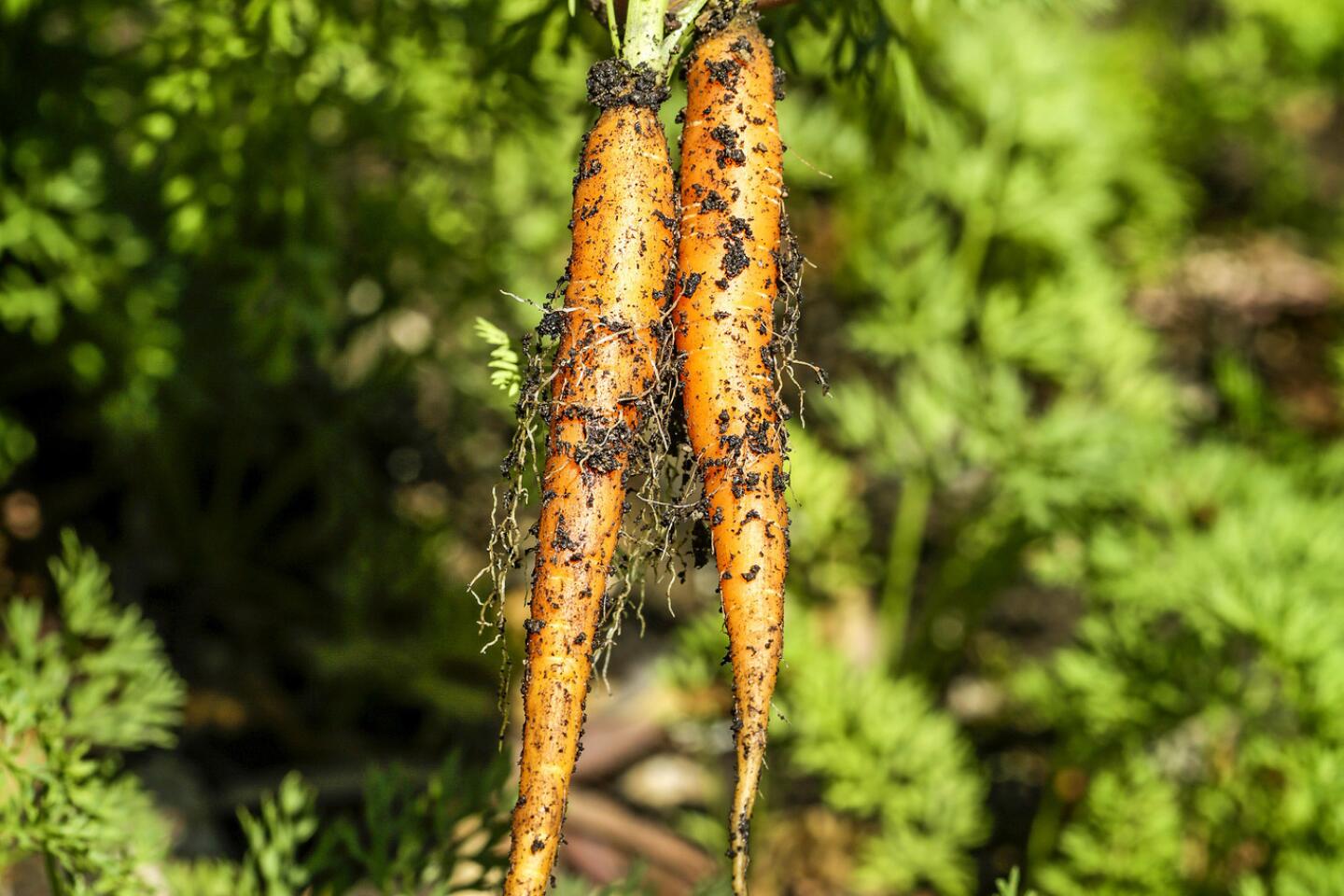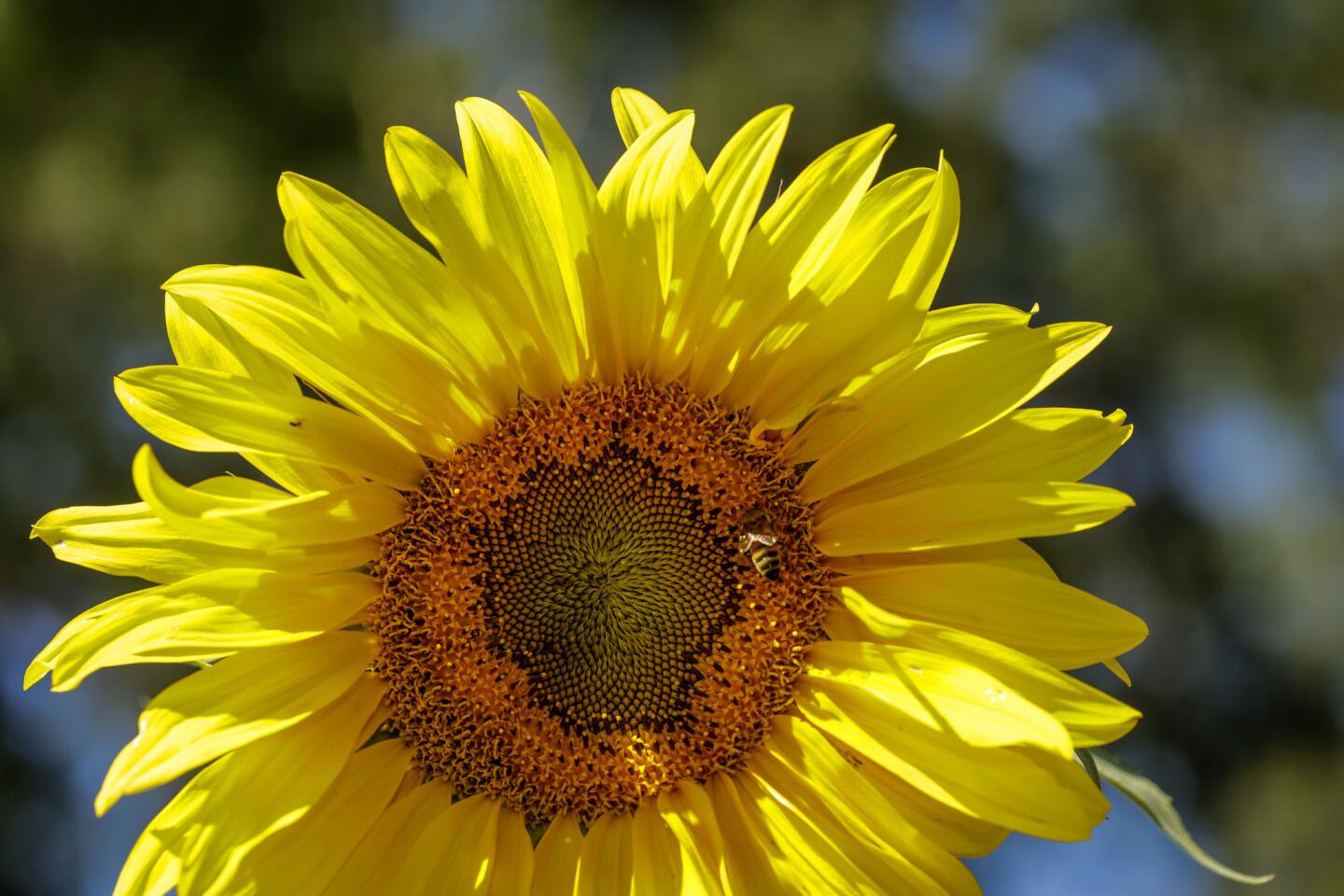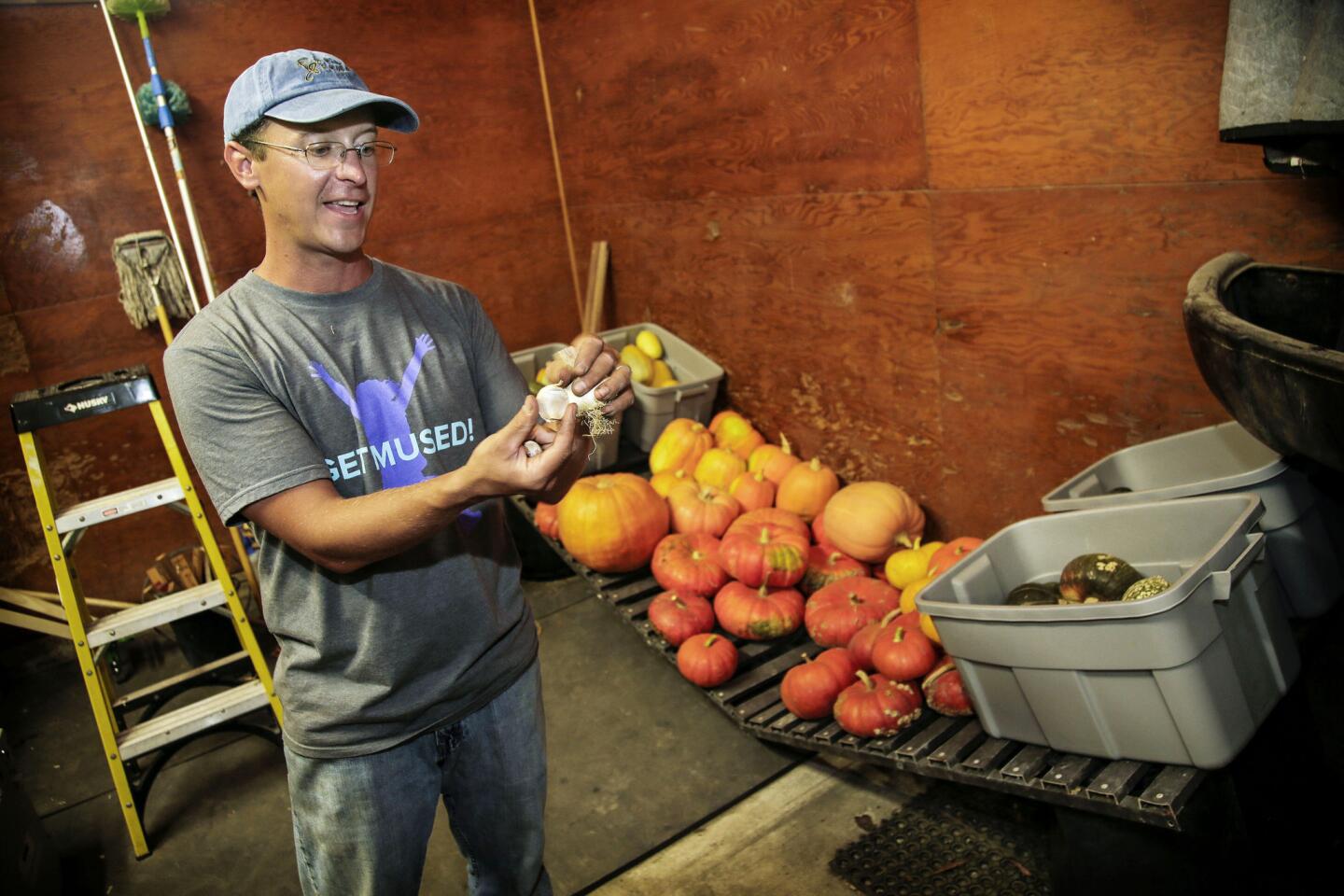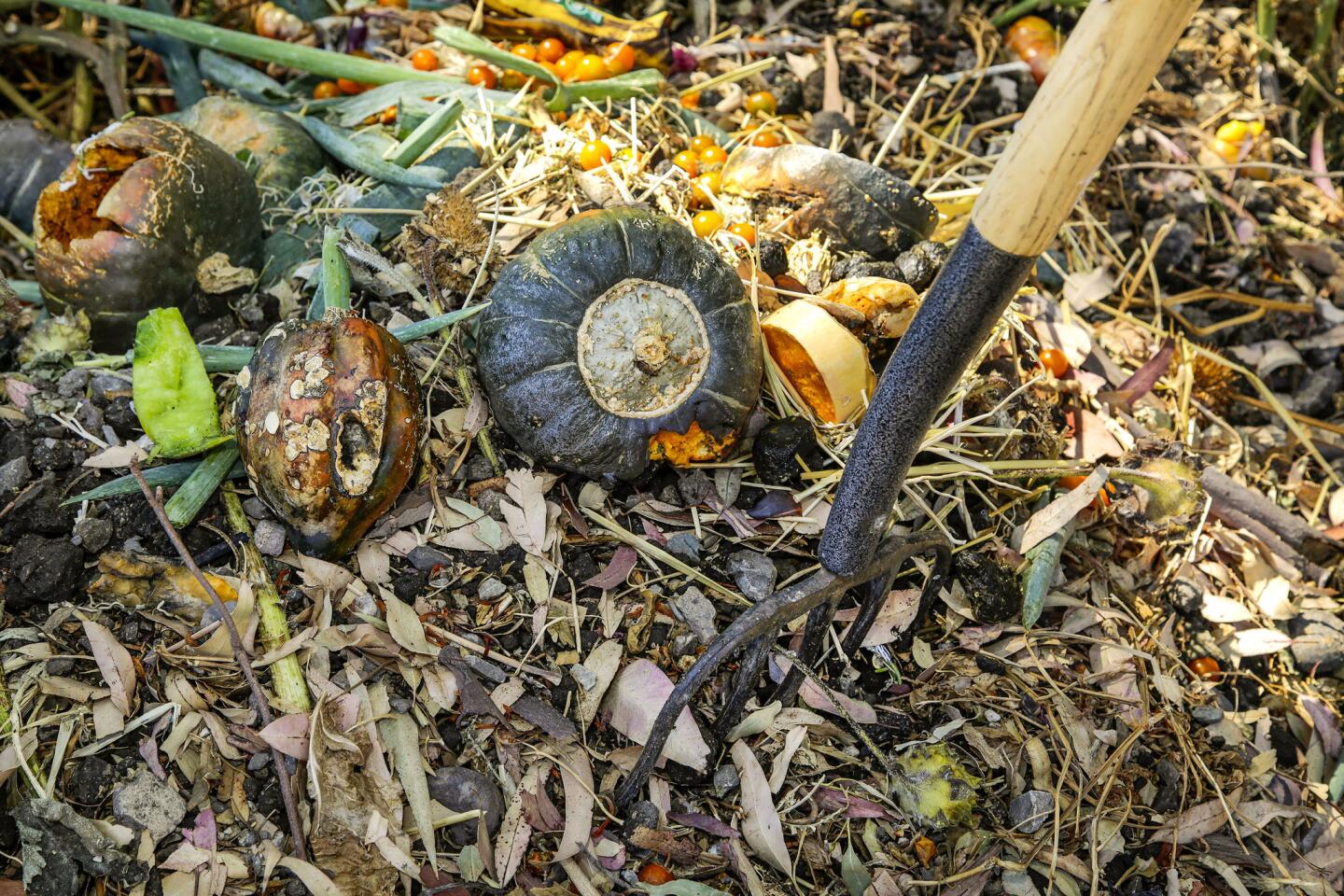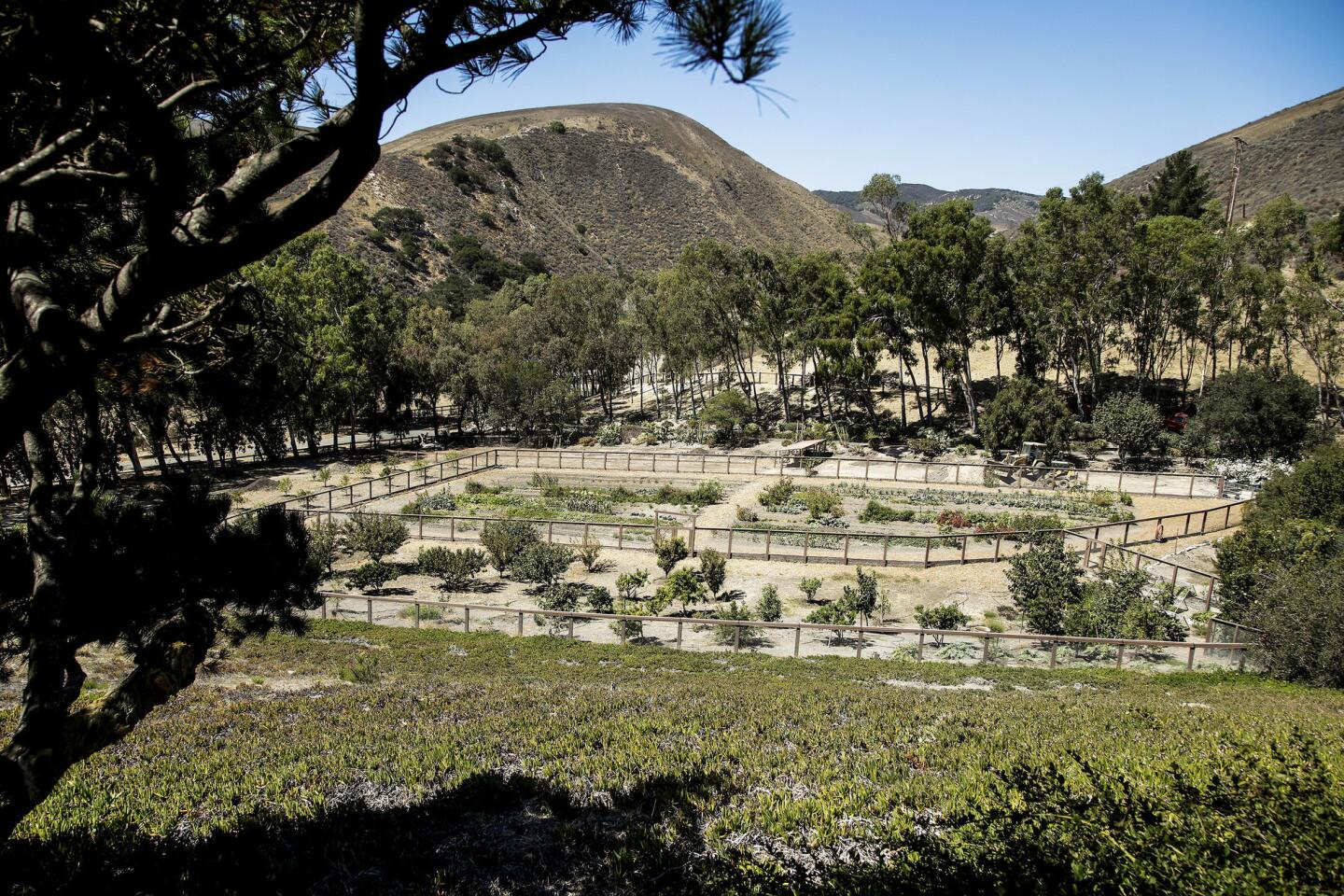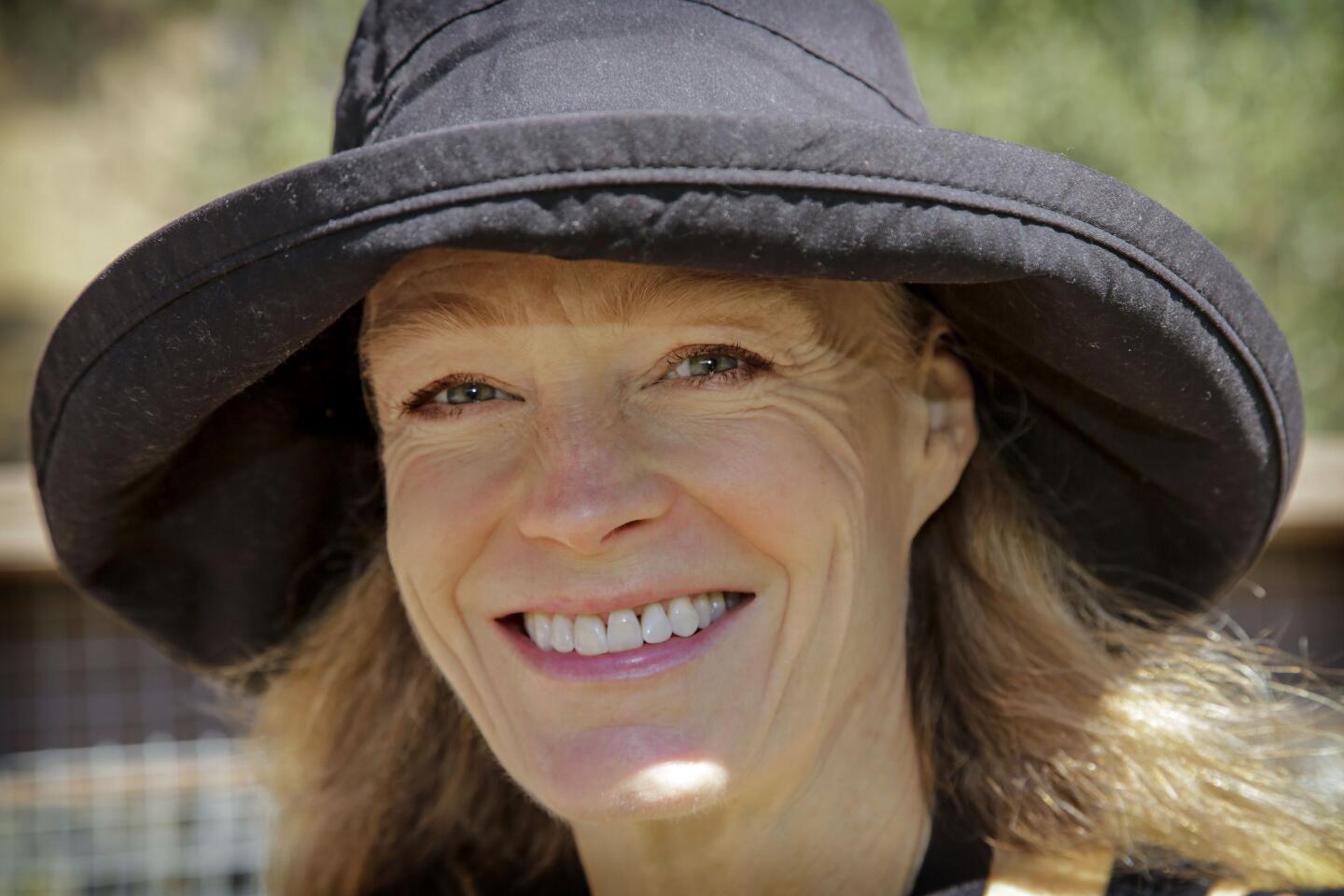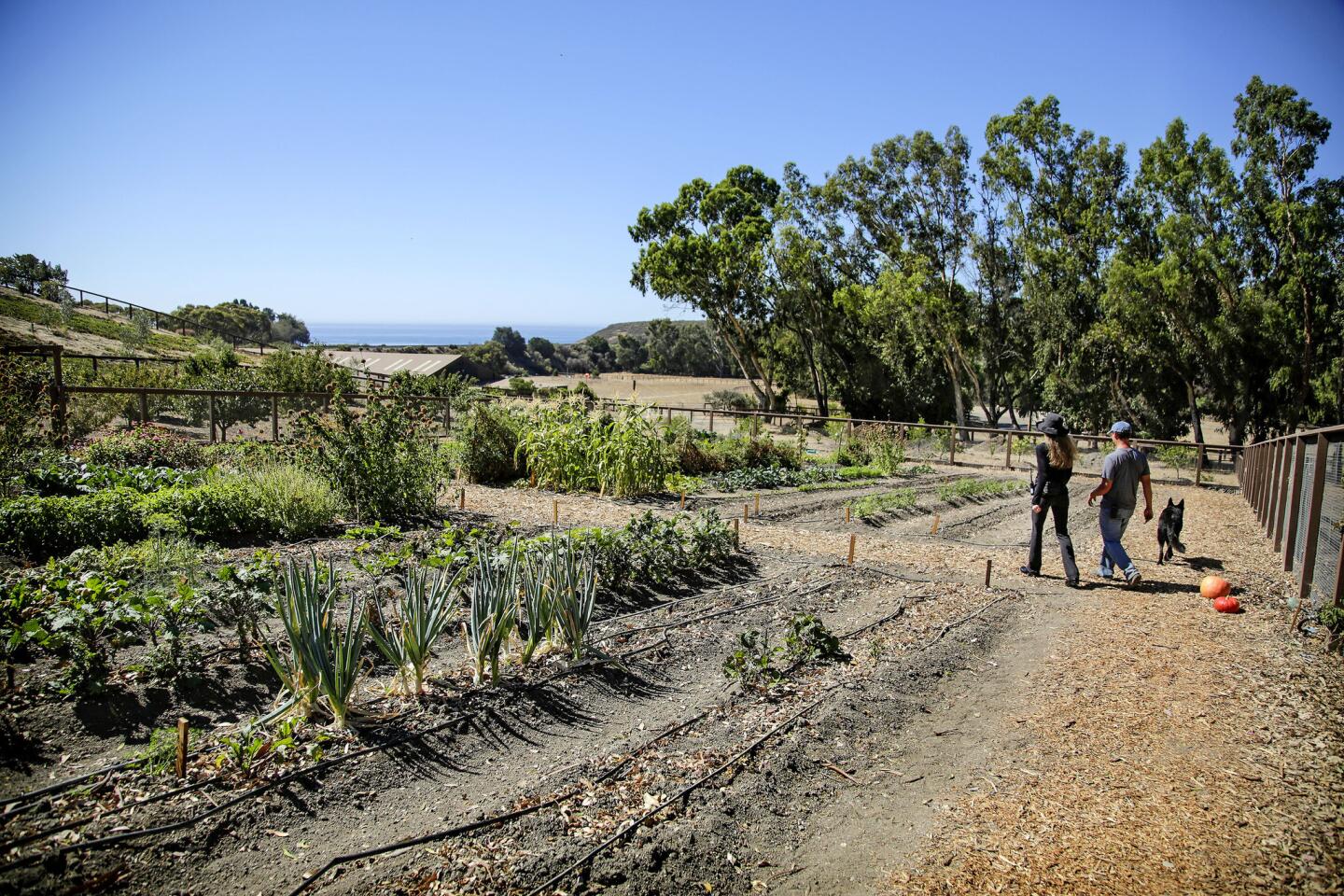Suzy Amis and James Cameron’s 100-acre mini farm near Santa Barbara
- Share via
More than 100 miles from Hollywood, the Hollister Ranch garden of James and Suzy Amis Cameron is transitioning to fall. Garden consultant Paul Hudak is pulling out 300 tomato plants and some squash and putting in long rows of lettuce, kale and quinoa. Walking the field, he pauses repeatedly, his pocket knife at the ready to cut into Adirondack blue potatoes, Moon and Star watermelons and kohlrabi. Later, in the greenhouse, he shares a Trinidad Moruga Scorpion, believed to be the hottest pepper in the world.
It’s a lovely garden peppered with colorful cosmos, zinnias, sunflowers and lion’s tail to attract beneficial bugs. Here, on a tranquil 100-acre parcel with inspiring views of the Pacific Ocean, James Cameron wrote “Avatar.” And here the couple grow about 90% of what they eat, Suzy Amis Cameron said, with surplus going to friends and the students at MUSE, the Calabasas school that she founded.
The family switched to a plant-based diet a year and a half ago after watching “Forks Over Knives,” Lee Fulkerson’s 2011 documentary detailing the positive effects of a plant-based diet.
“That’s really when the garden took off and we got serious about growing our own food,” Suzy Amis Cameron said. “We cut out anything that was coming from an animal and cleaned out our refrigerator in 24 hours.”
PHOTOS: Fall planting at the mini farm of James and Suzy Amis Cameron
The couple moved their goats and chickens to MUSE and hired Hudak, 35, to help them run the home mini-farm as well as the Seed to Table program at the school. Hudak has participated in the World Wide Opportunities on Organic Farms program, a sort of agricultural-based cultural exchange, and recently directed a farm program at a high school in Portland, Ore.
What had been an empty field was planted in March and is thriving with more than 150 different crops including arugula, Brussels sprouts, beets, carrots and lettuces. More than 15 trees were recently added, including fig, peach, plum, pomegranate and an unusual citron.
In summer, the garden was lush with heirloom tomatoes, berries and corn. Hudak said he tags each season’s best producers and saves the seeds for future crops. The farm’s success, he said, is rooted in biodiversity that keeps the ground fertile.
“It’s all about feeding the soil, not the plant,” he said. “Most soil will do well for a year, but after that it needs therapy.”
Hudak plants according to the biodynamic calendar, meaning fruits, vegetables and flowers are planted according to the moon phases. He is an ardent proponent of cover crops, plants that add nitrogen to the soil and out-compete weeds. This year’s cover crop at the Camerons’ ranch will be a mixture of fava beans, peas, vetch and oats, which will be grown after the winter crops are done, then tilled into the soil before summer crops are planted. Hudak said he also mixes an inoculant, a natural culture of beneficial bacteria available from seed companies, onto the seed before planting to fix more nitrogen and to promote growth.
Amis Cameron said she has gone to great lengths to compost without horse, cow or chicken manure. The compost here is made with only plant material and turned with a tractor every seven to 14 days; Hudak helps crops along by making compost tea for fertilizer.
Amis Cameron said this approach to food and gardening has deeply affected her family.
“It is fascinating how it has changed the way we feel: We are so energetic and full of life,” she said.
The Cameron children have joined in the planting and harvesting. Rose, 6, planted a fairy garden this summer composed of strawberries and flowers that attract hummingbirds and butterflies. Claire, 12, planted a garden of Swiss chard and kale because she wanted to create a shady habitat for her rats. And Quinn, 10, planted Roma tomatoes and lemon cucumbers for the pasta sauce and ketchup garden.
“The garden has brought our family together,” Amis Cameron said. “We now have a tendency to spend more time in the kitchen together.”
Fall and winter planting recommendations
Garden consultant Paul Hudak divides herbs and vegetables for fall gardens into two categories: those you can plant as seeds and those you’re better off buying as young plants. “October is a great time to plant all of these,” Hudak said. “The majority of these crops actually thrive in cooler weather.” Hudak’s recommendations for fall and winter:
Buy as seed:
Carrots, beets, parsnips
Turnips, radishes
Fava beans, peas
Buy as plants:
Arugula, spinach, collards, lettuce
Swiss chard, mustard greens, kale
Onions, garlic, scallions, broccoli
Cauliflower, cabbage, Brussels sprouts
Celery, cilantro
Twitter: @lisaboone19
ALSO:
Solar Decathlon 2013, green houses galore
Midcentury ‘tree house’ branches out in the Hollywood Hills
Lemon verbena: So many reasons to add aromatic plant to garden
For an easy way to follow the L.A. scene, bookmark L.A. at Home and join us on Facebook, Twitter and Pinterest.

